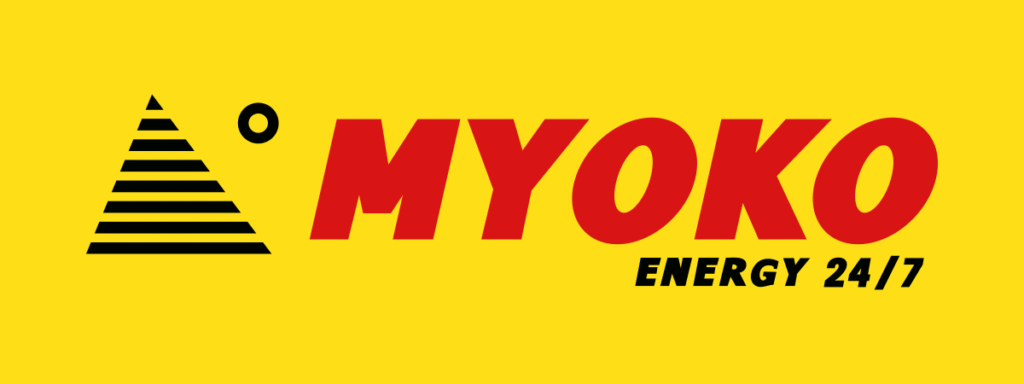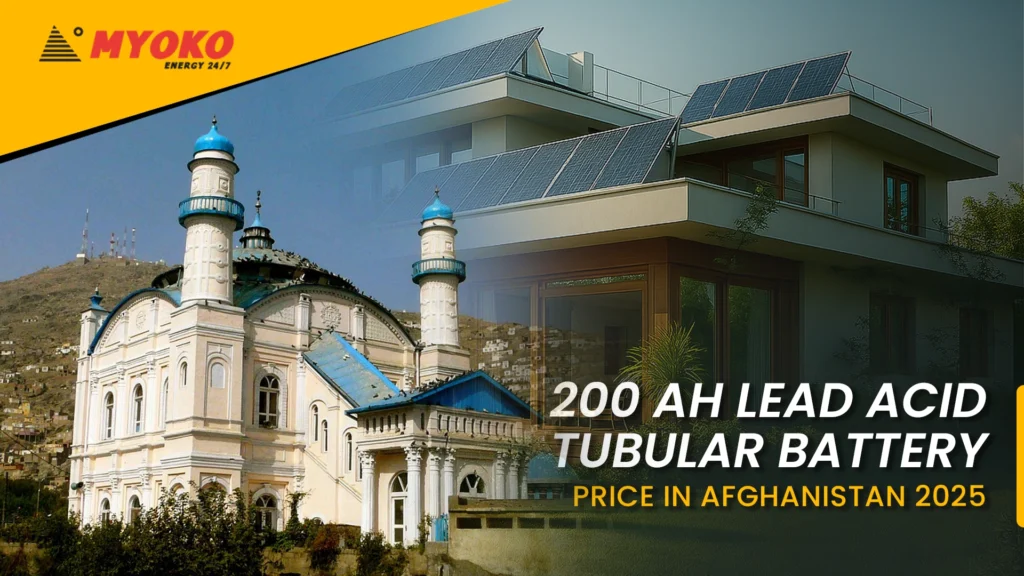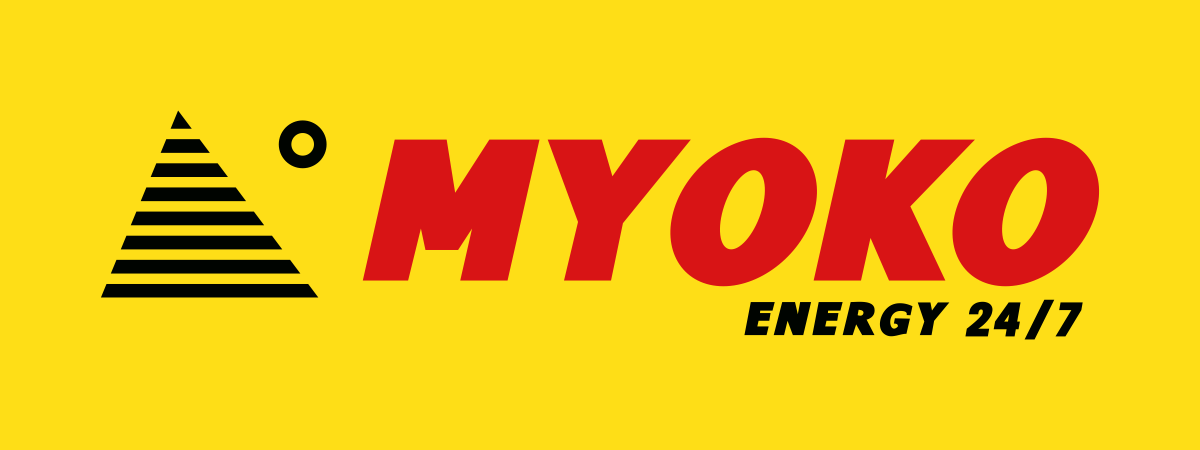Power cuts are a reality in many Nigerian cities — Lagos, Abuja, Port Harcourt or Kano. When the lights go out, life pauses: fans stop, food in the fridge risks spoiling, kids can’t study, and work grinds to a halt. That’s why choosing the best inverter battery for home is one of the smartest investments a household can make.
At Myoko India Private Limited we design batteries specifically to handle tough electrical conditions, tropical heat, and long outages. In this guide you’ll get a friendly, no-nonsense walkthrough: what Myoko offers (tubular, lithium-ion and SMF), clear technical specs, how to calculate backup needs, which range to choose, and why Myoko is recognized as a reliable best battery manufacturer for home and a leading best tubular battery manufacturer.
Why Inverter Batteries Are Essential in Nigeria
According to the Nigeria Electricity Regulatory Commission (NERC), the country experiences an average of 30–40 power interruptions per month in many regions.
This means your refrigerator, fans, lights, and even Wi-Fi router stop working multiple times a day. For students, professionals, and families, that’s more than inconvenience — it’s disruption.
“Reliable power is not a privilege. It’s a daily necessity — and a dependable inverter battery is the bridge between outage and comfort.”
That’s why investing in a high-quality inverter battery for home isn’t just smart — it’s essential.
Types of Inverter Batteries In Nigeria— Which One Is Best?
- Tubular Battery – Reliable & Budget-Friendly Power Backup
What It Is:
A tubular battery is a lead-acid battery designed with tube-shaped positive plates. These plates store and release energy efficiently, making the battery ideal for deep discharge applications like inverters and solar systems.
Why It’s Important for Nigerian Homes:
- Long Backup Time: Tubular batteries can power homes for 4–12 hours, depending on capacity (like 150Ah, 200Ah, or 250Ah).
- Durability in Harsh Conditions: Performs well even in high temperatures, common across Nigeria.
- Cost-Effective: Offers an affordable and reliable solution for middle-class households.
- Low Maintenance: Needs periodic distilled water top-up but lasts for years with care.
Best For:
Homes, small offices, shops, and areas with frequent or long power cuts.
Technical Specifications of Myoko Tubular Batteries
Myoko India Private Limited designs each tubular battery with deep-cycle performance, long life, and consistent backup — making them ideal for homes, shops, solar systems, and industries.
These batteries are engineered to deliver reliable power even in regions with frequent power cuts and high temperatures like Nigeria.
Model | Capacity (Ah) | Voltage | Backup Time | Cycle Life @ C10 | Application Areas |
MTB 150 C10 | 150 Ah | 12V | 4–6 Hours | 1500+ Cycles | Homes, Small Offices |
MTB 200 C10 | 200 Ah | 12V | 6–8 Hours | 1600+ Cycles | Shops, Clinics, Solar Use |
MTB 220 C20 | 220 Ah | 12V | 8–10 Hours | 1800+ Cycles | Industrial & Solar Systems |
MTB 250 C20 | 250 Ah | 12V | 10–12 Hours | 2000+ Cycles | Large Homes, Factories |
“Every Myoko battery is built with durable tubular plates, advanced electrolyte design, and a robust outer casing — ensuring long-lasting performance even under extreme Nigerian conditions.”
- SMF Battery – Compact, Clean & Zero-Maintenance Choice
What It Is:
SMF stands for Sealed Maintenance-Free battery. It’s a VRLA (Valve-Regulated Lead-Acid) type battery designed to be completely spill-proof and maintenance-free. It doesn’t need water top-ups or acid handling, making it ideal for urban and clean environments.
Why It’s Important for Nigerian Homes:
- No Maintenance Hassle: Once installed, no need to open or refill—it runs smoothly.
- Compact & Safe: Perfect for apartments or small homes where space is limited.
- Silent & Clean Operation: No acid fumes, so safe for indoor use.
- Reliable Backup: Ideal for areas with shorter power cuts (2–6 hours).
Best For:
Homes, apartments, hospitals, clinics, and offices where clean power and safety matter most.
Model | Capacity (Ah) | Voltage | Backup Time | Cycle Life @ C10 | Application Areas |
MSF 7.5 C10 | 7.5 Ah | 12V | 30–45 Minutes | 400+ Cycles | Emergency Lights, Security Systems |
MSF 26 C10 | 26 Ah | 12V | 1–2 Hours | 450+ Cycles | UPS, Medical Equipment |
MSF 65 C10 | 65 Ah | 12V | 2–4 Hours | 500+ Cycles | Telecom, Home Backup |
MSF 100 C10 | 100 Ah | 12V | 4–6 Hours | 600+ Cycles | Office, Solar Backup |
MSF 150 C10 | 150 Ah | 12V | 6–8 Hours | 800+ Cycles | Homes, Shops, Clinics |
- Lithium-Ion Battery – Smart, Efficient & Long-Lasting Energy Solution
What It Is:
Lithium-ion batteries use advanced lithium-based cells that store more energy in less space and provide high efficiency, fast charging, and long life cycles. They are the same technology used in electric vehicles and modern solar systems.
Why It’s Important for Nigerian Homes:
- High Energy Efficiency: Up to 95% energy efficiency, meaning almost no power loss.
- Fast Charging: Charges 2–3x faster than lead-acid or tubular batteries.
- Long Lifespan: Lasts up to 4000–6000 cycles, which means 8–10 years easily.
- Compact & Lightweight: Saves space and is easy to install even in small homes.
- Solar Ready: Ideal for solar hybrid systems, helping families move toward clean energy independence.
- Zero Maintenance: Completely sealed, with no acid or water refilling needed.
Best For:
Modern homes, villas, offices, and businesses looking for premium, long-term, eco-friendly energy backup.
Technical Specifications of Myoko Lithium-Ion Batteries
Model | Capacity (Ah) | Voltage | Backup Time | Cycle Life | Application Areas |
MLI 12V 100Ah | 100 Ah | 12.8V | 6–8 Hours | 3000+ Cycles | Residential Solar Systems |
MLI 24V 100Ah | 100 Ah | 24V | 8–10 Hours | 3500+ Cycles | Offices, Clinics, UPS |
MLI 48V 100Ah | 100 Ah | 48V | 10–12 Hours | 4000+ Cycles | Industrial Solar Systems |
MLI 24V 200Ah | 200 Ah | 24V | 12–14 Hours | 4000+ Cycles | Large Homes, Factories |
MLI 48V 200Ah | 200 Ah | 48V | 14–16 Hours | 4500+ Cycles | Commercial & Telecom Backup |
How to calculate Battery Backup–
Let’s make this simple with an example.
Step 1: Find your total load
List all the appliances you want to run during power cuts.
Appliance | Quantity | Power (Watts) | Total |
Fan | 3 | 70 | 210 |
Tube light / LED bulb | 5 | 20 | 100 |
TV | 1 | 100 | 100 |
Wi-Fi router | 1 | 20 | 20 |
Refrigerator | 1 | 200 | 200 |
Total Load | 630 Watts |
Step 2: Choose how long you need backup
Let’s say you need 5 hours of backup.
Battery Capacity (Ah) = (Load × Backup Hours) ÷ (Battery Voltage × Efficiency)
Assuming a 12V system and 85% efficiency:
= (630 × 5) ÷ (12 × 0.85)
= 3,150 ÷ 10.2 ≈ 309 Ah
So, you’ll need at least a 300–320Ah battery for 5 hours of backup at this load.
If your area experiences longer outages, you can pair multiple batteries (e.g., two 200Ah batteries).
Pro Tip: For small to medium homes, 150Ah–220Ah inverter batteries are ideal. For larger homes or heavy appliance use, go for 300Ah or higher.
Which Range Should You Choose? (Practical Guidance)
- Small apartment / light loads (lights, router, small TV): Myoko SMF 100–150Ah or Myoko Tubular 150Ah.
- Average 2–3 bedroom home: Myoko Tubular 200–220Ah is the sweet spot — cost-effective with 6–8 hours of moderate backup.
- Large home / heavy appliances / long outages: Myoko Tubular 250Ah or multiple batteries (200Ah+ in parallel) or Myoko Li-Power (5kWh+) for the highest efficiency and smaller footprint.
- If you plan solar: Choose Myoko Li-Power for best round-trip efficiency or Myoko Tubular Solar 250Ah for hybrid systems.
Final Word — Power Your Home Confidently
Power interruptions don’t have to dictate your day. Choosing the best inverter battery for home in Nigeria means matching the right chemistry, capacity, and product to your household’s real needs. If you want deep, reliable backup for long outages, tubular batteries from Myoko India Private Limited are an excellent fit; if you want cutting-edge efficiency and low maintenance, our Myoko Li-Power lithium range is built to deliver.
Myoko is committed to being your trusted partner — a best battery manufacturer for home solutions and one of the best tubular battery manufacturers built for life in hot, demanding environments.
“When the grid fails, hope shouldn’t. Choose Myoko — engineered for reliability, built for life.”
Frequently Asked Questions (FAQs)
- Which is the best battery company in Nigeria?
The best battery company in Nigeria depends on product quality, backup duration, and after-sales support.
Myoko India Pvt. Ltd. stands out as one of the best battery manufacturers for home and solar use, offering Tubular, SMF, and Lithium-Ion Batteries specially designed for Nigeria’s power conditions.
- What is the best inverter battery brand in Nigeria?
If you’re looking for long-lasting backup and durable performance, Myoko Batteries are among the best inverter battery brands in Nigeria.
They are built using advanced technology, ensuring long cycle life, consistent power, and superior efficiency even in high temperatures.
- Who is the best battery supplier in Nigeria?
Myoko India Pvt. Ltd. is a trusted battery supplier for Nigeria, exporting high-quality inverter and solar batteries directly from India.
With multiple product ranges — Tubular, SMF, and Lithium-Ion — Myoko delivers reliable energy solutions for homes, offices, and industries.
- Which battery is best for home inverter in Nigeria?
For most Nigerian homes facing frequent power cuts, Myoko Tubular Batteries (150Ah–250Ah) are ideal because they offer 4–12 hours of backup, long lifespan, and excellent solar compatibility.
If you prefer zero maintenance, you can also choose Myoko SMF or Lithium-Ion Batteries.
- How long does a 200Ah battery last on an inverter in Nigeria?
A 200Ah Myoko Tubular Battery can power your home for 6 to 8 hours on average, depending on the appliances connected.
For example:
- Fans + Lights + TV → 8 hours
- Lights + Fan + Refrigerator → 5–6 hours
Choosing energy-efficient appliances and maintaining your inverter helps extend backup duration.
- How can I calculate inverter battery backup for my home?
You can calculate backup time using this simple formula
Backup Time (in hours) = (Battery Capacity × Battery Voltage) ÷ Total Load (in watts)
Example:
If you use a 200Ah, 12V battery for a 400W load,
Backup = (200 × 12) ÷ 400 = 6 hours approximately.


